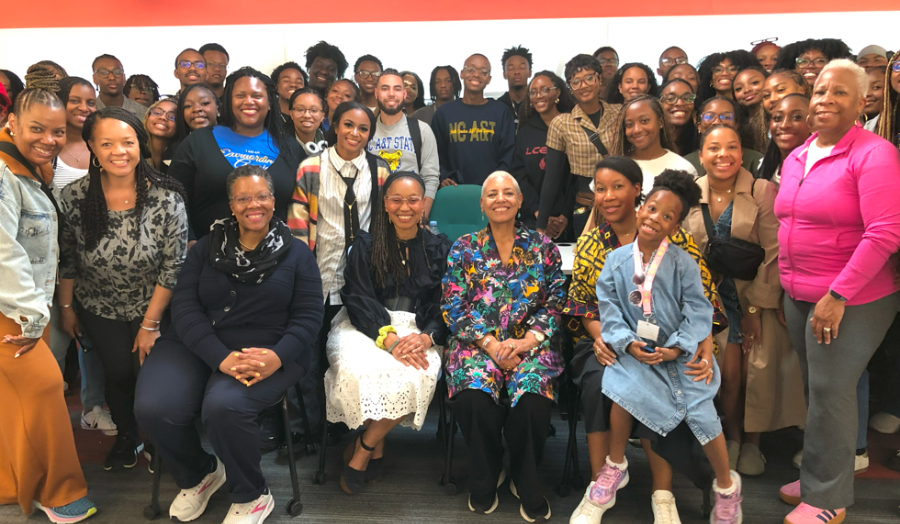A powerful afternoon of cross-Atlantic exchange, storytelling, and reflection on Black British history
Date: 15 July 2025
London Met welcomed over 60 students from North Carolina Central University (NCCU), a leading Historically Black College and University (HBCU) in the United States, for a special lecture on Black British History and activism on Saturday, 17 May.
Organised by the HBCU Partnership Project Manager in collaboration with London Met’s Centre for Equity and Inclusion, the session formed part of a wider educatinal exchange supported by Education First. Held at the University’s Holloway Road campus, it offered students a space for learning, reflection and cross-cultural dialogue.
The visit also included a co-delivered mini-lecture by Marva de la Coudray, Director of both the Centre for Teaching Enhancement and the Centre for Equity and Inclusion, and Sharon Lloyd, Deputy Director of the Centre for Equity and Inclusion. Their session, titled 'Radical Belonging: Race Equity and Social Justice at London Met,' explored the Black British educational experience and highlighted the university’s ongoing work in race equity.
Marva de la Coudray, Director of London Met’s Centre for Equity and Inclusion said, “It was an honour to host students and staff from North Carolina Central University and to hear from Leila Hassan Howe. Her storytelling and reflections were deeply moving and provided an important space for dialogue about Britain’s Black history and its ongoing impact.”
Thought-provoking discussions
The event was headlined by keynote speaker Leila Hassan Howe, a prominent British activist, editor, and founding member of the Race Today Collective. In a wide-ranging and powerful lecture, she drew on decades of experience in anti-racist organising, delivering a compelling narrative of Black British resistance, resilience, and political struggle. She also reflected on the legacy of her late husband, Darcus Howe – civil rights campaigner, writer, and broadcaster – whose work shaped the landscape of Black political thought in modern Britain.
The lecture added further depth to London Met’s ongoing work in social justice and took place shortly after the relaunch of the Centre for Equity and Inclusion – underscoring the University’s renewed focus on dismantling systemic inequalities and amplifying marginalised voices.
It was also part of London Met’s wider commitment to equity, inclusion, and international collaboration, especially through its growing partnerships with HBCUs across the United States. These connections aim to foster shared understanding, improve student outcomes, and strengthen global engagement between institutions.
The event sparked new connections between students, scholars, and activists – laying the groundwork for future transatlantic collaborations.

A powerful afternoon of cross-atlantic exchange
